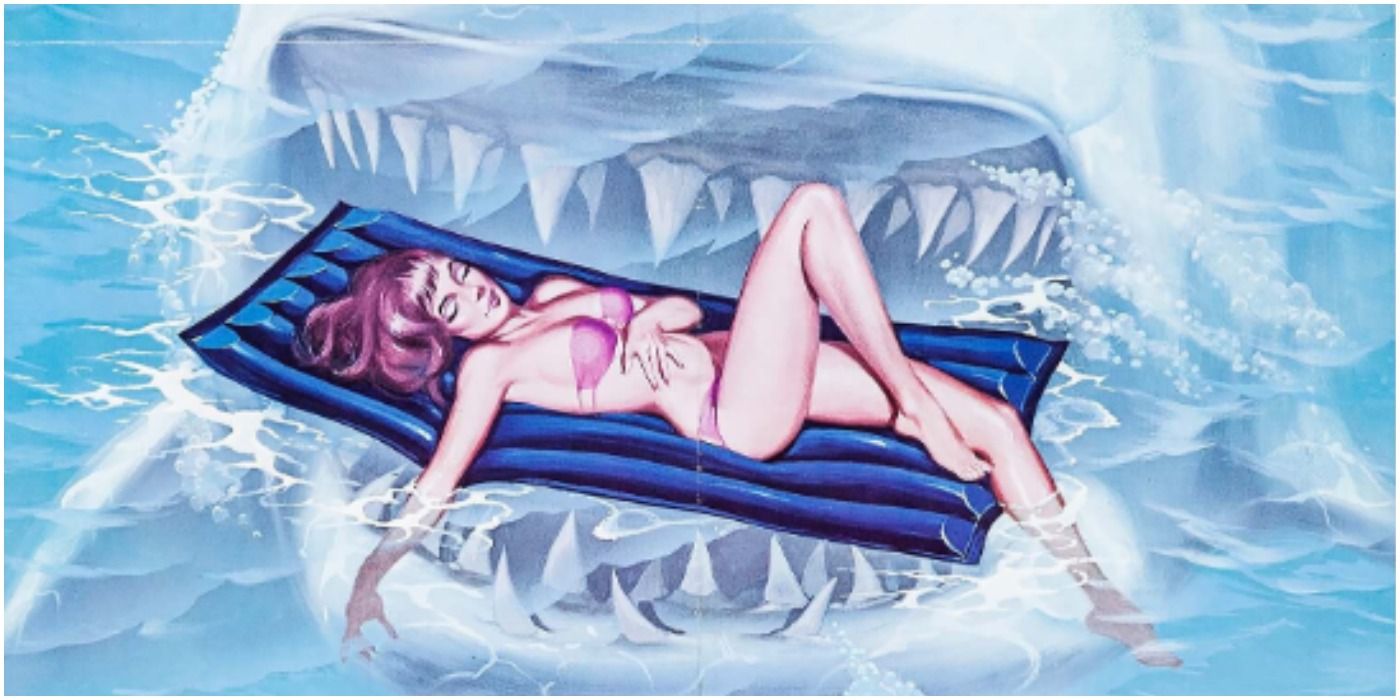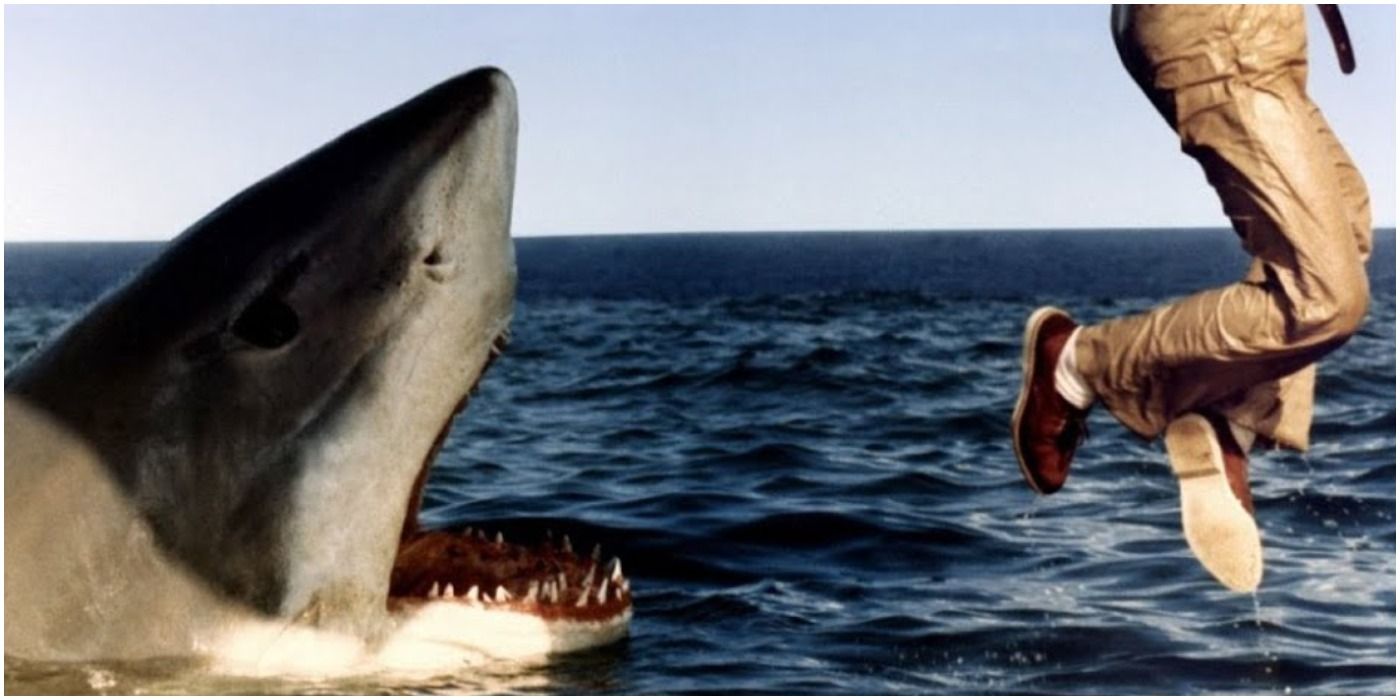In 1982, the Italian Jaws rip-off, Great White, made a sizable wave at the box office. Just a few weeks into its run, an injunction from Universal went into effect, pulling the film from theaters.
Though Jaws 2 had been a money-maker in the summer of 1978, a follow-up took several years to come together. Both David Brown and Richard Zanuck, producers for both Jaws films, were interested into turning the next chapter into a comedy. Feeling that the formula had already played itself out, a spoof of the sub-genre they had helped create would inject new life into the franchise. Partnering with Matty Simmons, who has just produced the comedy hit, National Lampoon’s Animal House, a script was commissioned with the working title Jaws 3, People 0. Before pre-production even began, studio heads reconsidered the idea and shelved the project for good.
While Universal was having a difficult time coming up with an appropriate vehicle for their favorite shark, other studios had no problem finding inspiration in the popular franchise. Creature features such as Tintorera: Killer Shark (1977), Piranha (1978), Barracuda (1978), Up From the Depths (1979) and Alligator (1980) all took small bites of the box office in in the wake of the popular shark saga. Most of these films shared a similar formula; people are attacked and killed while swimming at a popular location while authorities press to keep it open for financial reasons. By 1980, the shark/maneater sub-genre had waned, with most independent studios caught up in making cheap slasher films similar to Friday the 13th.
Jaws: Why Universal Killed The Italian Rip-Off Of Spielberg's Movie
A few years after the comedic Jaws sequel was nixed, documentary producer Alan Landsburg bought the rights and began developing a new film. By 1982, pre-production was well underway with a script that several writers helped shape. While most studios had moved on from shark-centric films, Film Ventures took a chance and acquired an Italian film called L'ultimo Squalo, a.k.a. The Last Shark. Directed by Enzo G. Castellari, the film shared several elements with the Universal films, including a great white shark attacking swimmers on a popular beach. Film Ventures retitled the film Great White and came up with a huge ad campaign evocative of both Jaws films.
The campaign alone was enough for Universal Pictures, whose current fight with AMC Theaters has been well documented, to take the production company to court for plagiarism. They attempted to block the release, but the U. S. District Court denied the request, allowing for the film to open as planned on March 5, 1982. Great White opened to a big box office, with saturation campaigns in most major markets. Unfortunately, just a few weeks into its successful run, a federal judge agreed that there were too many similarities between Great White and Universal's Jaws films. The movie was immediately pulled from release, but not before grossing around $18 million in the United States. This was good news for Universal, as it solidified their belief that the public was still interested in man-eating sharks.
The resulting film, 1983’s Jaws 3-D, performed well at the box office, though earned nowhere near the numbers that the previous films generated. The film was also savagely criticized, with many complaining that the 3-D technique used gave the film a cheap, murky look. It would be another four years before Universal attempted another film in the franchise. By then, public interest in the brand had all but disappeared. The lawsuit against Great White kept the film from public view for years, though European markets were not restricted from access. Bootleg copies of the film began to surface in the late 1990s, with copies of the Italian language version leaked to platforms such as YouTube in the 2000s. A RiffTrax version of the film, under The Last Shark moniker, is currently available for streaming as of this writing.


